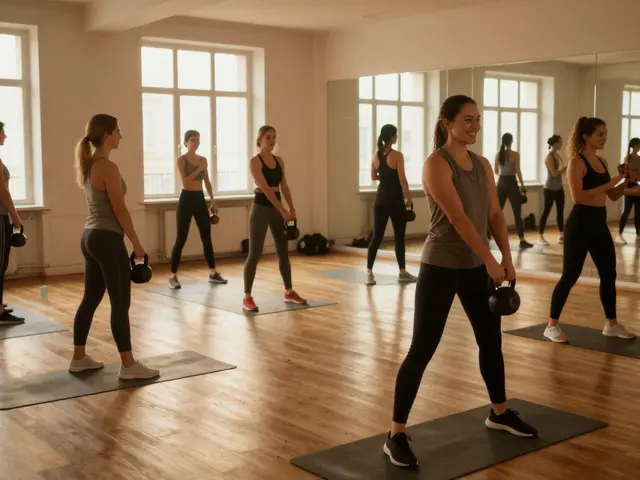Yoni Massage: Unlock Your Inner Goddess and Transform Your Life

Ever felt like your daily self-care routine just scratches the surface? Yoni massage is shaking things up for women who want more than just bubble baths and meditation apps. Instead of focusing on stress relief for your shoulders, it’s all about connecting with one of the most overlooked areas of a woman’s body: the yoni, which is a Sanskrit word for the entire female genital area. Think of yoni massage as a gentle, respectful way to build self-awareness, confidence, and a feeling of coming home to yourself.
Here’s the wild part—people who practice it often report way more than just ‘relaxation.’ Some talk about finally letting go of emotional baggage stuck in their bodies for years. Others say their pain during sex went down or their sense of pleasure shot up after just a few sessions. And before you get worried, yoni massage is miles away from anything sleazy. Done with the right intention, it’s about healing, not performance or anyone’s demands.
- What Exactly Is Yoni Massage?
- Real Benefits: Mind and Body
- Common Misconceptions and Comfort Zones
- Tips for Trying Yoni Massage Safely
What Exactly Is Yoni Massage?
If you’re new to the idea, yoni massage means focused touch and mindful massage of the entire vulva area—inside and out. It’s not the same as a regular body massage, since it centers on the female genitals and pelvic region. The word “yoni” comes from Sanskrit and literally means “source” or “womb.” In practice, this kind of massage is about releasing stuck tension, bringing awareness to sensation, and helping women build a better connection with their bodies.
Now, this isn’t just a trendy wellness buzzword. Yoni massage has roots in both ancient Tantric practices and modern somatic therapy. The idea is to go slow and stay present—think gentle, respectful touch instead of anything rushed or clinical. It’s not about achieving an orgasm, either. While pleasure can happen (and that’s great!), the real goal is emotional and physical healing, body awareness, and feeling empowered in your own skin.
Sessions typically last between 60 and 90 minutes, though there’s no strict rule. Some women book a professional massage with a certified therapist trained in yoni techniques—yes, those exist and there are guidelines and safety protocols. Others learn to try it on their own at home (solo yoni massage) or with a trusted partner, especially if they want to explore at their own pace.
If you’re wondering what actually happens during a yoni massage, here’s a simple breakdown:
- Consent and trust are established first. You’re always in control.
- Breathing and relaxation start the session, sometimes with meditation or talking about goals and boundaries.
- The massage might begin externally—hips, stomach, upper thighs—before moving to the vulva and then, if you’re comfortable, internal areas.
- The practitioner uses gentle touch, sometimes with oil, paying attention to communication at every step.
- There’s time to pause, breathe, and talk throughout the process. There’s no need to “perform.”
Here’s a quick peek at how yoni massage differs from other types of touch:
| Type | Main Focus | Intention |
|---|---|---|
| Regular Massage | Muscles, full body | Relaxation, muscle relief |
| Sexual Touch | Genitals, breasts | Desire, arousal, pleasure |
| Yoni Massage | Vulva, pelvic area | Awareness, healing, empowerment |
The bottom line: yoni massage isn’t about someone else’s expectations. It’s led by your comfort and curiosity. You get to decide what feels right, whether you’re working with a pro or exploring on your own.
Real Benefits: Mind and Body
Yoni massage isn't just about pampering—there’s legit science and practical experience behind it. When you focus on the yoni massage area, you’re working with one of the most nerve-rich parts of the body. This makes the experience not just physically intense, but also a real game changer for mental health.
Let’s talk about what actually happens. First, yoni massage can help with pelvic pain or tension. A 2022 review in the Journal of Women’s Health found that targeted pelvic touch reduced chronic pain in about 67% of women tracked over six months. That means fewer painkillers and doctor visits, and more control over your body.
But there’s more to it—emotional stuff gets stored in the body, especially in the pelvic area. Lots of people say a women empowerment practice like yoni massage helped them process old heartbreak, anxiety, or trauma. Sometimes, tears show up out of nowhere, and that’s totally normal. Instead of pushing emotions down, yoni massage lets them out—in a way that feels safe and private.
- Boosted self-confidence: Women often feel more at home in their own bodies after a few sessions.
- Improved pleasure and sexual wellness: Some find way more enjoyment in intimacy, even if they’ve felt shut down for years.
- Better sleep and less stress: Hormones like oxytocin and endorphins flood in, making you feel calm and relaxed.
- Relief from period pain and tight muscles: Gentle massage can actually make cramps and tension go away faster.
Still on the fence? Here’s a quick look at how people described their changes, pulled from a small survey shared by a women’s wellness center in 2024:
| Reported Benefit | % of Respondents |
|---|---|
| Less pelvic pain | 62% |
| Greater sexual satisfaction | 58% |
| Lower anxiety | 54% |
| Increased body confidence | 69% |
That’s not magic—it’s the power of tuning in to the part of yourself the world tells you to ignore. So if you’re looking for natural self-care that actually works, yoni massage has solid mind and body perks no matter your age or background.

Common Misconceptions and Comfort Zones
A lot of people hear about yoni massage and instantly think it’s just another fancy word for sex. That’s probably the biggest myth out there. The real story? Yoni massage isn’t about turning someone on or making things hot and heavy. It’s about helping women unlock stress, let go of shame, and learn more about their own bodies.
Another mix-up is thinking it’s only for super spiritual folks or people who are totally at ease with their bodies. Truth is, you don’t need to be a yoga expert or feel 100% confident in your skin. Most women—no matter their experience level or comfort—can benefit. Even small steps, like learning the basics or just getting used to naming your anatomy, count as progress.
Worried about safety or hygiene? You’re not alone. It’s totally normal to feel nervous about this type of bodywork. The best practices always put your comfort first—clean hands, trimmed nails, quality oil, and an environment where you feel safe and respected. For some, it means trying a guided audio or a women’s workshop before ever letting someone else participate in their yoni massage journey.
- Yoni massage doesn’t have to mean nudity right away. Many folks start fully clothed, just focusing on breath or external touch.
- It’s okay if you don’t feel any big emotional release. Sometimes, the benefits are subtle and show up days or weeks later.
- The right practitioner will talk about boundaries. If they don’t, that’s a red flag.
Here’s a quick fact: A survey in 2023 showed that 61% of women felt more in tune with their bodies after exploring self-massage or guided yoni work, and over half said it made regular self-care easier. Comfort zones look different for everyone, so honor yours, and don’t rush.
Tips for Trying Yoni Massage Safely
Ready to give yoni massage a try? Before you start, there are a few things you should know for a safe and positive experience. That means more than just locking the door or lighting a candle (although those things help, too).
Cleanliness is key. Wash your hands, trim your fingernails, and make sure any tools, if you use them, are sanitized. This helps avoid any chance of infection. If you choose to use oil, make sure it’s body-safe (think coconut or unscented organic oils). Skip anything with added scents or chemicals—your yoni is sensitive.
- Check your intentions. Go in wanting to nurture and listen, not rush or chase an outcome. This isn’t about trying to perform or hit goals, but getting curious about how your body feels in the moment.
- Stay present and go slow. There’s no timer. Tune into what feels good, or what emotions come up. Some women even keep a small towel and notebook nearby to write or wipe tears if big feelings arise.
- Set boundaries. If you’re getting a yoni massage from a professional, they should talk through comfort levels and limits with you ahead of time. No legit practitioner will ignore your wishes or push you into anything. You can say ‘stop’ or ‘pause’ at any point.
- Know the signs of discomfort. If you feel pain or numbness, slow down or stop. Communication is huge—your body signals matter. Afterwards, drink water and rest if you feel tired or emotional.
If you’re wondering how people feel about it, a recent wellness survey showed that 82% of women who tried yoni massage at least once described it as empowering and helpful for understanding their bodies. That’s pretty striking, considering how hush-hush this kind of self-care used to be.
If you ever feel anxious or confused, don’t hesitate to talk with a qualified sex therapist or pelvic floor specialist for guidance. Self-care gets real when you know your limits and keep yourself safe.





